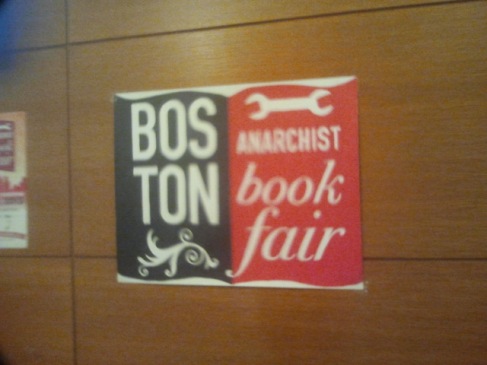Dispatch #9: Hare Krishna
The first thing you do as you enter the Boston Hare Krishna Temple is take off your shoes. In the next room, people stand around making small talk. Children run through the hallways lined with paintings of Krishna and portraits of A. C. Bhaktivedanta Swami Prabhupada, the founder of the International Society for Krishna Consciousness.
Nobody seems put off by a bewildered outsider wandering aimlessly through the temple. It may be a fairly common occurrence. “Hare Krishna,” people say as they pass.
There’s a gift shop with T-shirts and necklaces, paper masks and Krishna coloring books, cans of Sprite and Snapple. This isn’t the part of the temple where the religious rituals are held, apparently.
In a larger room downstairs people are singing and dancing before an altar. There are candles, flowers, and more paintings of Krishna. There are no Prabhupada photographs here, only a very lifelike and creepy statue.
Slowly, people trickle in, dropping to their knees and bowing to the floor, then standing again and moving towards the altar, dancing and singing the call-and-response chants. People are playing finger cymbals and drums. A woman sitting on the floor is playing a miniature keyboard and directing the singing and chanting.
As the room fills up, the singing, dancing, and chanting reaches a fever pitch. The altar is obscured by the crowd now. People appear to be having a blast.
Suddenly the music stops. Everyone drops to their knees, heads bowed to the floor. There are call and response chants.
Hare hare,
Hare hare,
Krishna Krishna,
Krishna Krishna,
And so on. Eventually people sit up, no longer bowing, although they remain on the floor. The curtains close, hiding the colorful altar with it’s flowers and idols and pictures of Krishna.
Then the slick temple pitchman stands, and gives his spiel.
Krishna is eternally grateful to those devotees who give money to pay for this and that thing that the temple requires. Today marks the end of the month of Kartik, he says, making it a specially opportune time to fork over some cash. Krishna won’t forget it. You can add to your “spiritual bank account,” according to the pitchman.
Regular temple attendees should be paying “anywhere from 31 dollars to 3.1 million dollars” a month, he says. “We say there’s no minimum, but $31 is really the minimum.”
He discusses the campaign to distribute copies of the Bhagavad Gita to hotels and random people everywhere. It’s going well. Devotees should take it upon themselves to distribute as many Gitas as possible. The pitchman’s own brother distributed 8,000 in Texas in a year, he says.
“We’re not here to put on a cultural display,” he says. “We’re here to spread the word of Krishna, and Krishna consciousness, and to chant ‘Hare Krishna.’”
Temple members are encouraged to buy Gitas by the case, at $108 per case. There are 24 to a case, like beer. He sells eight cases, taking pledges, in a style reminiscent of an auctioneer, before the devotees line up for dinner.
